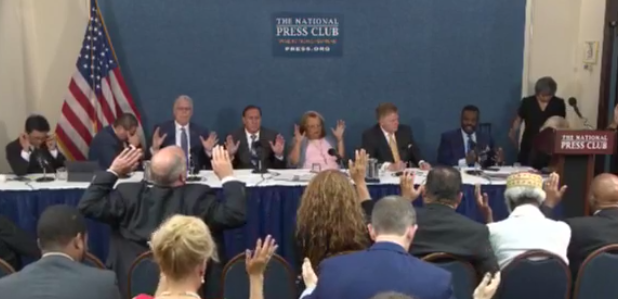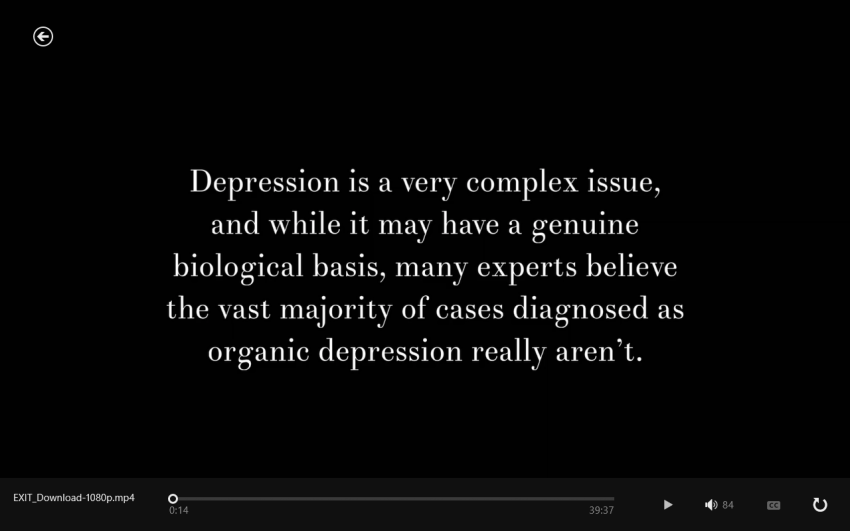 On Monday, I wrote about the conflict between adherents of biblical counseling and Christian psychology. Biblical counseling denies the role of psychology in counseling while Christian psychology (as proposed by former Southern Baptist Theological Seminary professor Eric Johnson) uses the research and insights of psychologists to enhance counseling.
On Monday, I wrote about the conflict between adherents of biblical counseling and Christian psychology. Biblical counseling denies the role of psychology in counseling while Christian psychology (as proposed by former Southern Baptist Theological Seminary professor Eric Johnson) uses the research and insights of psychologists to enhance counseling.
In the recent post, I mentioned a document titled 95 Theses for an Authentically Christian Commitment to Counseling. The document was written by Heath Lambert, a SBTS professor and executive director of the Association of Certified Biblical Counselors. Lambert said that the theses were written to stimulate debate. This post and future posts on the topic are written as a response to the theses.
I want to start by discussing the following statements and present a case study. I intend to send this post to Dr. Lambert and will post any response he sends.
The Nature of Counseling and the Content of Scripture
6. When people experience difficulties as they live in a fallen world, they require wisdom about life to help them face these problems (Prov 19:20).
7. The wisdom to confront life’s difficulties is most often communicated in conversations our culture refers to as counseling.
8. The issues of concern in counseling pertain to problems people face as they relate the difficulties in their life to the faith and practice described in Scripture.
9. Because counseling problems concern the very same issues that God writes about in his Word, it is essential to have a conversation about the contents of the Bible to solve counseling problems.
10. The subject matter of counseling conversations is the wisdom needed to deal with life’s problems, and so counseling is not a discipline that is fundamentally informed by science, but by the teaching found in God’s Word.
11. When the Bible claims to address all the issues concerning life and godliness, it declares itself to be a sufficient and an authoritative resource to address everything essential for counseling conversations (2 Pet 1:3-4).
12. Christians must not separate the authority of Scripture for counseling from the sufficiency of Scripture for counseling because, if Scripture is to be a relevant authority, then it must be sufficient for the struggles people face as they live life in a fallen world (2 Pet 1:3-21).
13. The authority and sufficiency of Scripture for counseling means that counselors must counsel out of the conviction that the theological content of Scripture defines and directs the conversational content of counseling.
14. The Bible teaches that the person and work of Jesus Christ provide God’s sufficient power to solve every problem of humanity so, according to Scripture, he is the ultimate subject of every counseling conversation (Col 2:2-3).
According to the statements above, a Christian approach to counseling should address life’s difficulties, and involve the Bible and Jesus Christ alone as the solutions to all problems. At the outset, we might have a disagreement about the proper subject matter for counseling. I accept the reality of mental and emotional disorders and believe that counseling conversations may also involve techniques and information which do not come directly from the Bible. But I am getting ahead of myself. Let me first present the case (some identifying details have been changed).
A mother and her second grade son attended the first session together. The father was at work. A meeting with them revealed that the youngster was afraid to remain in his school classroom. The boy attended a local public school and had never been afraid to go to school before. However, within the first month of school, his pattern was to enter school and remain in his classroom. After just a few minutes, he bolted from the room to the school office seemingly in terror and asked for his parents. This had been going on for about a month nearly every day. He remained in school on days his class attended field trips or out of class activities (e.g., library days). The parents had tried alternating morning rides to school and his father had carried him back into the classroom on multiple occasions only to have the same result. He bolted from the class looking for his parents.
On examination, the boy had male typical interests, played rough and tumble sports, was tall for his age, and was socially popular. He had never displayed separation anxiety beyond the norm prior to this year. In all respects except the fear of remaining in his classroom, the boy and his family (one older female sibling) seemed entirely normal and unremarkable from a mental health standpoint. The parents were leaders in their Christian church and the boy happily attended Sunday School and had professed a belief in Jesus as his Savior.
I realize this puts any respondent at a disadvantage. I have the details and know how the case turned out. However, I am curious to know if this kind of situation would be taken on by a biblical counselor. Given the statements concerning the sufficiency of the Bible to handle all problems, I wonder how a biblical counselor would begin and what kind of interventions would be considered.
If I don’t hear from ACBC, then I will give my best guess about how a biblical counselor would respond based on the 95 theses, and then explain how I responded, and why I think this case is relevant to the discussion about biblical counseling and Christians in psychology.
To read all posts in this series, click here.


